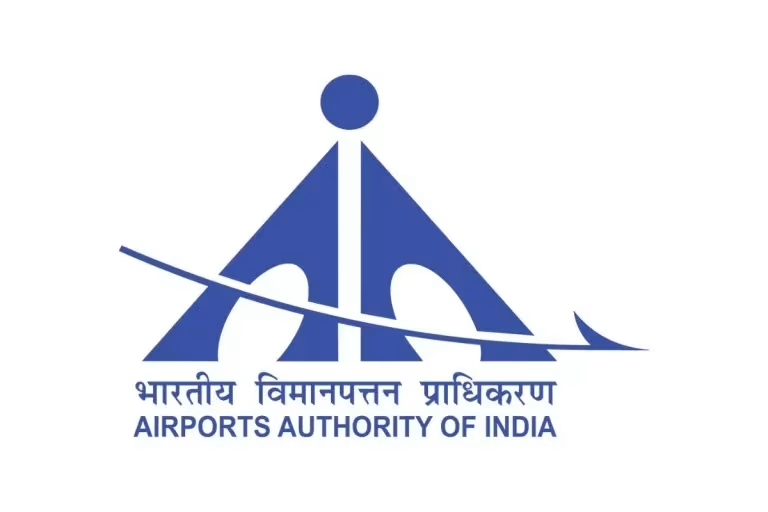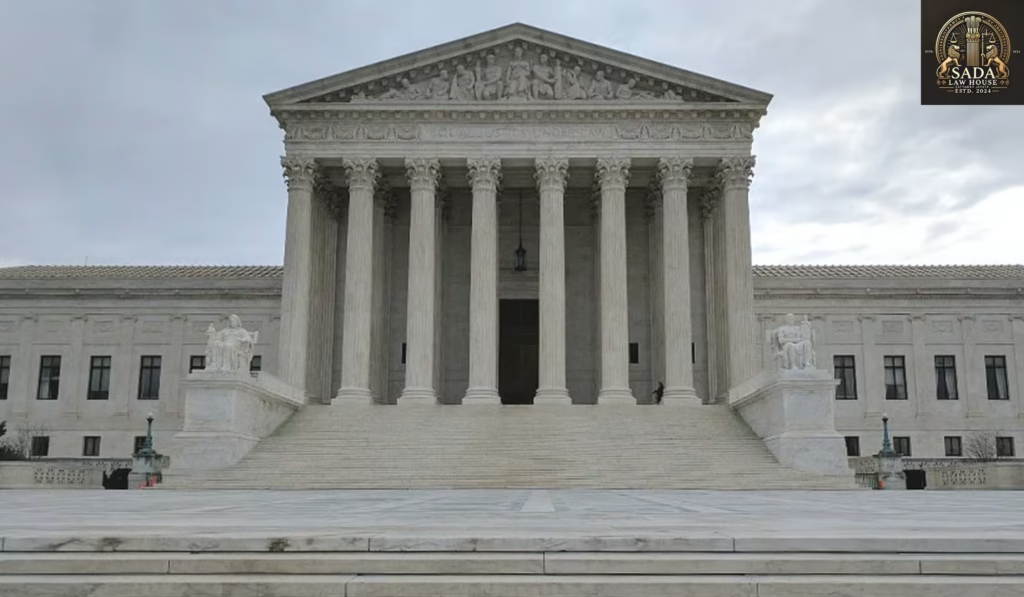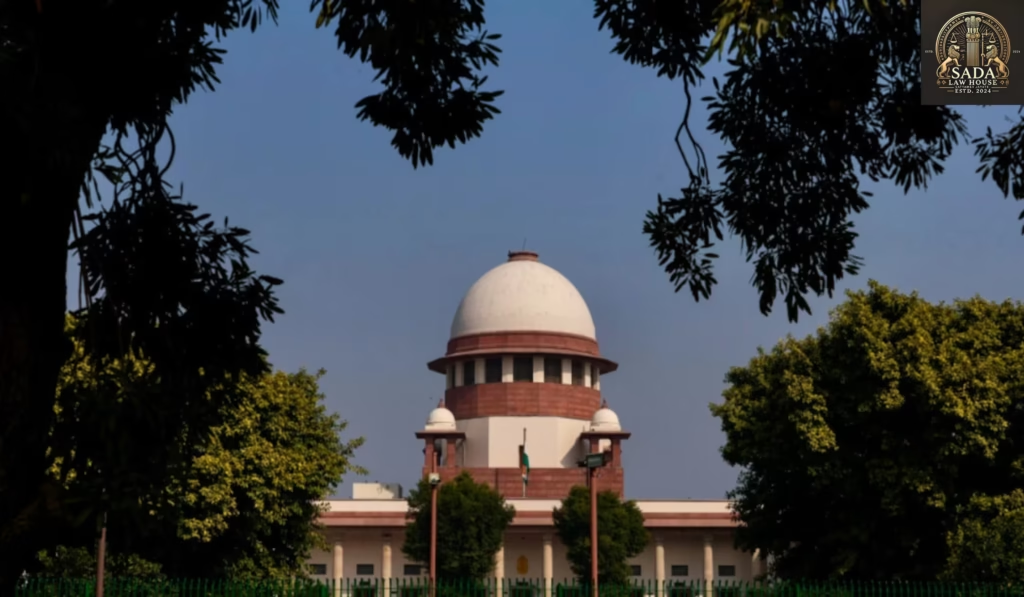Trending Today Calcutta High Court Grants Temporary Bail to Law Student Sharmistha Panoli in Objectionable Video Case US Supreme Court Greenlights $1.29 Billion Lawsuit Against ISRO-Owned Antrix Over Devas Arbitration Supreme Court Directs States and UTs to Strengthen Domestic Violence Act Implementation with Legal Aid, Protection Officers, and Shelter Homes Supreme Court: Complainant in Cheque Bounce Case Under Section 138 NI Act Can Appeal Acquittal as ‘Victim’ Under CrPC Section 372 Delhi High Court Slams DPS Dwarka for Publicly Shaming Students Over Unpaid Fees AIMPLB to File Contempt Petition Against Centre Over Launch of Waqf Umeed Portal Amid Supreme Court Hearing on Waqf (Amendment) Act 2025 Supreme Court Forms Committee to Manage Overcrowding and Ban Illegal Mining in Ranthambore Tiger Reserve Kerala High Court Orders Disclosure of Cargo and Oil Spill Data from MSC Elsa Sinking on Environment Day Pakistani National Living in Goa Since 2016 Appeals to Supreme Court After Visa Revocation Madras High Court Recognizes Same-Sex Couples as Family, Upholds LGBTQIA+ Rights and Personal Liberty US Supreme Court Greenlights $1.29 Billion Lawsuit Against ISRO-Owned Antrix Over Devas Arbitration PRABHAT KUMAR BILTORIA 07 June 2025 The US Supreme Court has allowed a $1.29 billion lawsuit against ISRO-owned Antrix Corporation to proceed. Learn how this decision impacts international arbitration, sovereign immunity under FSIA, and the long-standing Devas-Antrix dispute. US Supreme Court Rules in Favor of Devas Over Jurisdictional Dispute In a significant legal development, the United States Supreme Court has permitted a $1.29 billion lawsuit to move forward against Antrix Corporation, the commercial arm of ISRO. The case was initiated by Devas Multimedia and Mauritius-based CC/Devas to enforce an arbitral award without the need to prove Antrix had “minimum contacts” with the US. Supreme Court Overturns Ninth Circuit Decision The ruling overturns a 2023 verdict by the Ninth Circuit Court of Appeals, which had dismissed the lawsuit for lack of jurisdiction under the Foreign Sovereign Immunities Act (FSIA). Writing for the Court, Justice Samuel Alito clarified that personal jurisdiction is valid when an FSIA immunity exception applies and service is proper. FSIA: Key to Jurisdiction in Sovereign Lawsuits The Court emphasized that under the FSIA, sovereign immunity is lifted when a foreign state’s commercial activity has a “direct effect” in the United States. For example, actions like unpaid dues to a U.S. bank are considered to have such direct effects, even if the act occurs abroad. Background: The Antrix-Devas S-Band Deal In 2005, Antrix signed a deal with Bengaluru-based Devas to lease S-band satellite transponders to deliver multimedia services across India. However, in 2011, the Indian government terminated the contract, citing national security and the strategic use of the spectrum. Arbitration and Legal Fallout Following the contract’s cancellation, Devas initiated arbitration at the International Chamber of Commerce (ICC)</a), which awarded $562.5 million in damages in 2015. Foreign investors also launched bilateral investment treaty (BIT) claims against the Government of India, winning additional awards. India’s Fraud Allegations and Court Challenges In response, the Indian government claimed the deal was fraudulent. In 2021, the National Company Law Tribunal (NCLT) ordered the liquidation of Devas, branding it a sham entity. The Supreme Court of India upheld this verdict in 2022, echoing the same allegations. Additionally, the Delhi High Court annulled the ICC award, citing fraud, patent illegality, and conflict with Indian public policy. Parallel Legal Battle in the United States While Indian courts rejected Devas’ claims, the company pursued award enforcement in multiple jurisdictions, including the US. Although the District Court upheld the award, the Ninth Circuit reversed it over jurisdiction concerns. Now, with the Supreme Court’s latest interpretation, the lawsuit is back on track. Supreme Court: No ‘Minimum Contacts’ Required Under FSIA The Court firmly stated that FSIA does not require additional constitutional due process tests like “minimum contacts.” According to Justice Alito, “Any mention of ‘minimum contacts’ is particularly missing from the provision. And the Court declines to add what Congress left out.” Implications and Next Steps This landmark decision confirms that once an FSIA immunity exception applies and proper service is made, personal jurisdiction in US courts is automatic. It solidifies FSIA’s role in providing a predictable legal framework for foreign state litigation. The Supreme Court sent the case back to the Ninth Circuit to explore other issues like forum non conveniens and the impact of the Indian courts’ rulings. Leave a Reply Cancel Reply Logged in as Sada Law. Edit your profile. Log out? Required fields are marked * Message* Live Cases Calcutta High Court Grants Temporary Bail to Law Student Sharmistha Panoli in Objectionable Video Case Calcutta High Court Grants Temporary Bail to Law Student Sharmistha Panoli in Objectionable Video Case Sada Law • June 7, 2025 • Live cases • No Comments US Supreme Court Greenlights $1.29 Billion Lawsuit Against ISRO-Owned Antrix Over Devas Arbitration US Supreme Court Greenlights $1.29 Billion Lawsuit Against ISRO-Owned Antrix Over Devas Arbitration Sada Law • June 7, 2025 • Live cases • No Comments Supreme Court Directs States and UTs to Strengthen Domestic Violence Act Implementation with Legal Aid, Protection Officers, and Shelter Homes Supreme Court Directs States and UTs to Strengthen Domestic Violence Act Implementation with Legal Aid, Protection Officers, and Shelter Homes Sada Law • June 7, 2025 • Live cases • No Comments 1 2 3 … 5 Next »










